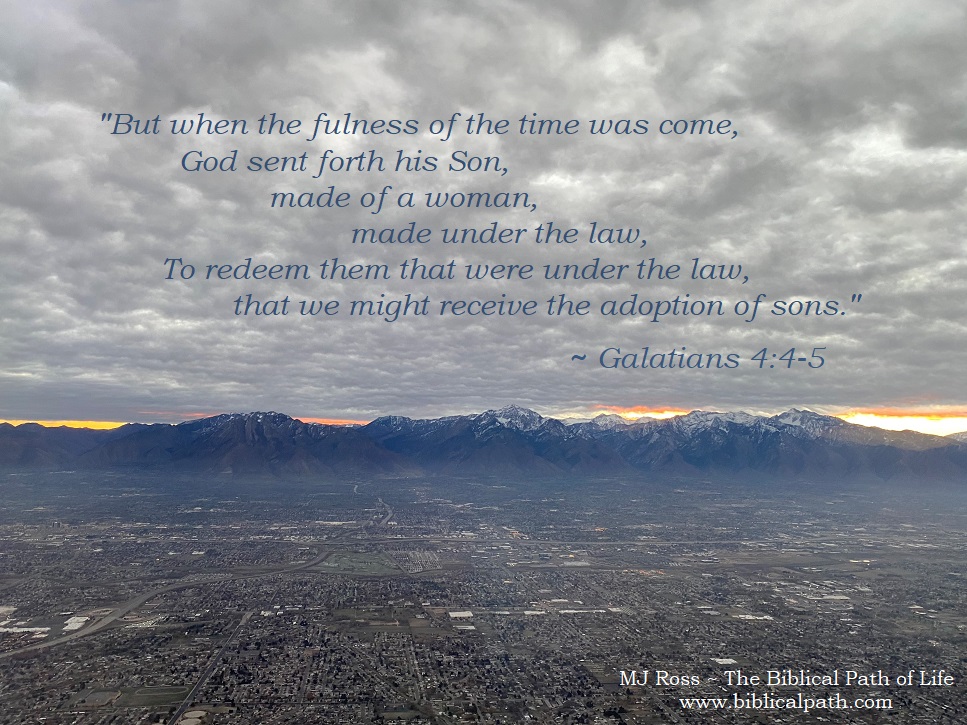
Acts 15:11
Jesus’ ministry began shortly after John the Baptist introduced Jesus saying, “Behold the Lamb of God, which taketh away the sin of the world” (John 1:29b). Then “… Jesus began to preach, and to say, Repent: for the kingdom of heaven is at hand” (Matthew 4:17). There were many facets of Jesus’ ministry. Not only did he preach repentance to the people, but he healed many as well. “35. And Jesus went about all the cities and villages, teaching in their synagogues, and preaching the gospel of the kingdom, and healing every sickness and every disease among the people. 36. But when he saw the multitudes, he was moved with compassion on them, because they fainted, and were scattered abroad, as sheep having no shepherd” (Matthew 9:35-36). The words moved with compassion means “from the bowels; to feel deeply; to yearn, have compassion, pity.” Jesus saw the need of the people. However, especially notice that it took a decision on the part of the person, or persons, involved – to believe or not to believe. Remember: “For the Son of man is come to seek and to save that which was lost” (Luke 19:10).
Sometimes after Jesus healed someone, He would say to tell no one. However, oftentimes the one healed told everyone – insomuch that Jesus could not enter into the city for the crowds that wanted to see Him. This hindered Jesus’ ability to preach. “1. And again he entered into Capernaum after some days; and it was noised that he was in the house. 2. And straightway many were gathered together, insomuch that there was no room to receive them, no, not so much as about the door: and he preached the word unto them” (Mark 2:1-2). Soon the crowds heard He was in town and went to find Him. “3. And they come unto him, bringing one sick of the palsy, which was borne of four. 4. And when they could not come nigh unto him for the press, they uncovered the roof where he was: and when they had broken it up, they let down the bed wherein the sick of the palsy lay. 5. When Jesus saw their faith, he said unto the sick of the palsy, Son, thy sins be forgiven thee” (Mark 2:3-5). Four friends brought a man sick of the palsy to Jesus to be healed. Palsy means “the loss of motor power in the muscles or the voluntary muscular motion; equivalent to motor paralysis.” These friends lowered the sick man (who could not come on his own) through the roof because there were too many people in the house. Nevertheless, Jesus saw their faith. Faith means “faith in Christ to be able to work miracles or to heal the sick.” Do you remember what Jesus went about preaching? Repent. Repent means “to change the mind; regret or sorrow, accompanied by a true change of heart toward God; sorrow for unbelief and sin and turning from them unto God and the gospel of Christ.” Jesus wanted the people to turn from their sin. Therefore, he forgave those who came to Him in faith.
“But there were certain of the scribes sitting there, and reasoning in their hearts, 7. Why doth this man thus speak blasphemies? who can forgive sins but God only?” (Mark 2:6). These scribes understood that it was only the Lord, “Who forgiveth all thine iniquities; who healeth all thy diseases” (Psalm 103:3). Yet, they witnessed Jesus declare this man’s sins were forgiven. “8. And immediately when Jesus perceived in his spirit that they so reasoned within themselves, he said unto them, Why reason ye these things in your hearts? 9. Whether is it easier to say to the sick of the palsy, Thy sins be forgiven thee; or to say, Arise, and take up thy bed, and walk? 10. But that ye may know that the Son of man hath power on earth to forgive sins, (he saith to the sick of the palsy,) 11. I say unto thee, Arise, and take up thy bed, and go thy way into thine house. 12. And immediately he arose, took up the bed, and went forth before them all; insomuch that they were all amazed, and glorified God, saying, We never saw it on this fashion” (Mark 2:7-12).
When Jesus forgave that man’s sins, the scribes were “reasoning in their hearts.” Amazingly, Jesus knew their thoughts and answered their unspoken questions. Remember: God knows all. In addition, to show these unbelieving religious leaders He had the ability to not only heal but also forgive sins, Jesus told the man to take up his bed and walk. And he did. All were amazed at this healing.
Christians understand that sinners must be brought to Jesus. Just as these four friends brought their friend to meet Jesus, we, too, must bring our friends to Jesus. However, most importantly, we must understand that although the four friends brought this man with palsy to Jesus, this man had to decide for himself. He had to have faith in Jesus, believing His words. When the man obeyed, he was healed. It was not his friends’ faith that saved him. It was incumbent upon that man to decide whether he believed Jesus’ word or not. He had to act upon the word of Jesus. When he immediately arose, took up his bed, and went forth – that showed his faith in Jesus. No one had ever seen anything like that before.
Remembering that Jesus came to provide salvation, if you do not tell your friends about Jesus, who will?








